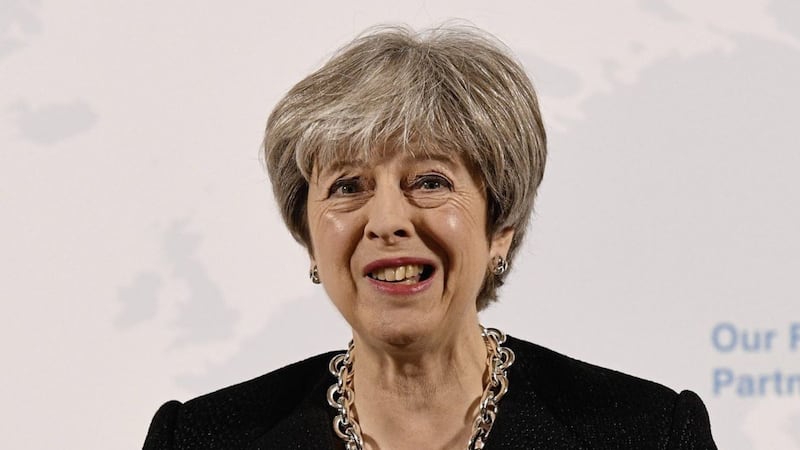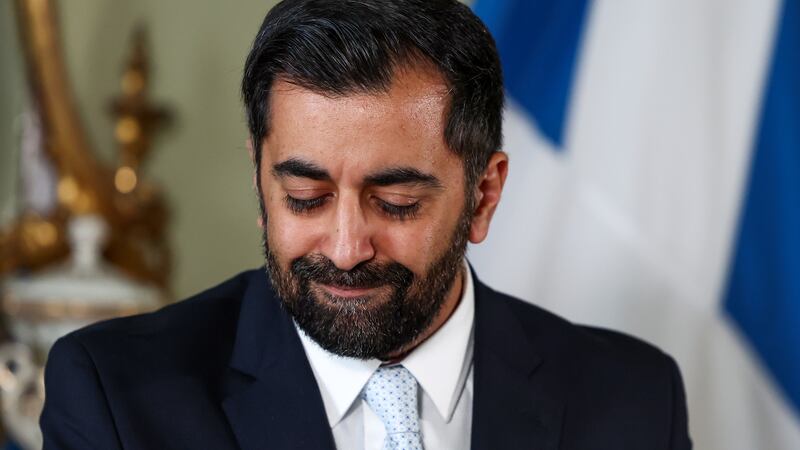REPUBLICANS have seized on Theresa May's apparent doubt over the outcome of a border poll as proof that the conditions for a unity referendum have been met.
The British prime minister is reported to have told Tory colleague Jacob Rees-Mogg that she would not be as confident as him about winning a vote.
The comments were said to have been made during a discussion with the arch-Brexiteer about the implications of new customs arrangements at a post-Brexit border.
Mr Rees-Mogg reportedly argued that the British government would emerge victorious from a border poll in the same manner that 2014's Scottish independence referendum had been won.
[ John Manley: Cavalier attitude to Brexit advances cause of united IrelandOpens in new window ]
However, the Tory leader is said to have voiced doubts about the outcome.
"I would not be as confident as you – that's not a risk I'm prepared to take," The Times reported Mrs May saying.
"We cannot be confident on the politics of the situation, on how it plays out."
A decision on when to call a border poll lies with the Northern Ireland secretary of state.
According to the Good Friday Agreement, a referendum can be called "at any time it appears likely to him that a majority of those voting would express a wish that Northern Ireland should cease to be part of the United Kingdom and form part of a united Ireland".
A Downing Street spokesman yesterday said the British government "steadfastly" supported the Good Friday Agreement.
He added: "It remains the Northern Ireland secretary’s view that a majority of people in Northern Ireland continue to support the current political settlement, and that the circumstances requiring a border poll are not satisfied."
However, Sinn Féin deputy leader Michelle O'Neill claimed Mrs May's remarks were effectively an admission that the threshold for a vote on Irish unity had been met.
The Mid Ulster MLA said her party had raised the need for a border poll with the British government on "numerous occasions over recent years".
"On each occasion they have stated that they do not believe the threshold has been met but have repeatedly refused to clarify what criteria they use to reach this conclusion," Ms O'Neill said.
She described the failure to call a referendum as an "appalling display of contempt for the democratic rights of Irish citizens".
"It is also a fundamental breach of the Good Friday Agreement which clearly provides for a referendum – Theresa May has no right to deny democratic entitlements to the people of Ireland, north and south."
SDLP leader Colum Eastwood said the Tory leader's comments reflected the "changing constitutional landscape" after the Brexit vote.
However, he said the current climate of uncertainty is "not the time to sensationalise unity or obsess over border polls".
He said the SDLP was committed to "delivering a new inclusive Ireland" but unionism needed to be persuaded about the benefits of Irish unity.
“It is vitally important for those of us who are committed to a new and reconciled Ireland (that we) advance that position with open arms and an open mind of what an inclusive Ireland would look like," he said.
“The SDLP remain committed to the principle of consent, and with changing demographics and wavering political tides, we recognise the task at hand in reaching out to unionism on this very issue, however, if that last two years have taught us anything, we cannot and should not take any political eventuality for granted."








